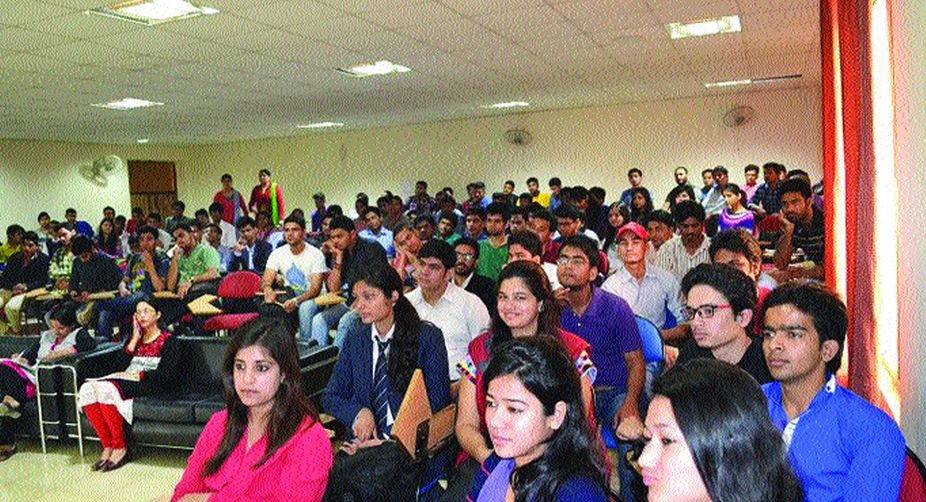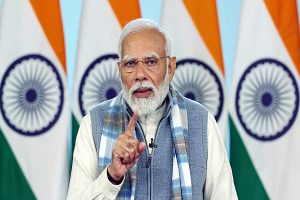For a country as vast as India, it is a matter of immense concern that despite the whole expansion of education in universities it is able to satisfy only 17 per cent of the employers while leaving the 83 per cent dissatisfied. According to a study by the Confederation of Indian Industry, out of five million graduates every year only 34 per cent of them are employable.
Setback is the employer’s notions about the perfect candidate. They generally consider and focus on the hard skills while recruiting and the soft skills remain ignored. Communication, cognitive abilities and analytical thinking are not as easy to teach or develop as they are thought to be. And that is why the recruited candidates with underdeveloped skills, fail to work in real time situations. However, the scenario now is taking a slow but positive turn. There is a paramount and momentous need to look for an answer to the question that “What actually is being fuelled into the graduate market that is giving house to this vicious cycle?”
The vital components that form this economy are globalisation, change and the war for talent that have apparently become the norm. While giving a reality check, there is more graduate talent to choose from but not all of them are going to fit in your business. The workplace dynamics are hugely impacted by the changing demographics. Companies are being flooded with Gen-Y and millennial workforce, forcing them to re-think about their strategies to attract and develop the talent sub-set and also to manage and engage a multi-generational workforce effectively.
Shortages in talent and shifts in employer presence in geographies, such as China, are already proving challenging in achieving MNCs' aspirations for growth. A major factor in graduate recruitment is emigration for better educational and job opportunities, therefore giving more scope of growth and attracting graduates to move abroad. The Organisation for Economic Cooperation and Development has conducted surveys that show the number has doubled for students enrolling in educational programmes outside their own country. Now one-in-five graduates are looking to get employment in the country of study like the USA, Australia and UK being the most popular destinations.
The dynamics and landscape of the market are changing and are evolving and will continue to do so. These aren’t the only factors that are responsible in increasing the global skills shortage but definitely they highlight the significant role of the graduates in the business environment and accentuate the urgency of searching graduates that are work-ready.
Current recruitment practice is the second challenge. Both, the companies and the graduate talent are finding it difficult to get the right person. Many graduates apply for jobs that are not mapped to their education or their skills. It's been researched that at least one- in-five graduates (21 per cent) apply for jobs that do not complement their interests.
The third challenge is to foster the leaders of the future who will take the organisational objectives and business success way ahead. According to a research by the Ceb, approximately one-in-10 graduates penetrating the workforce will have the prospect to be an effective leader in the future. The skills that the graduates have and the skills that the businesses need, do not match each other. These skills need to be defined by the organisations and they must ensure a consistent, accurate and scalable approach to calculate against certain criteria.
Generally, job applicants seek for companies which have a strong employee value proposition. Firms shouldn't presume that graduates are enticed by salary and material reward. Today, the graduates are actually motivated by the scope of growth and opportunities that the organisation provides them. These days, most graduates spend reasonable amount of time researching employers, before applying. This leaves the organisations with a tight window to communicate. Almost all graduates check their prospective employer online before approaching them for jobs. Various social media websites have become the key to research on the employer.
Employability should be framed in a simple model that provides a clear picture that helps organisations know the talent they employ. This model could consist of key behaviours that promote effective job performance in the short-term and provide broader potential for the future.
Framing this model with intelligence could really motivate graduates and could be a powerful tool to accelerate the investment done in recruitment. Further, this intelligence goes in increasing the probability that graduates make an au courant choice when they apply to an employer, that they commit to and persist through an organization’s recruitment process, and also stay with the business once they are hired.
for the workforce is probably the highest priority business leaders globally. This reflects the mushrooming importance of using data to forecast the needs for future staffing. Short-term and long-term business outcomes depend on how well the connectors, in the form of big data or talent intelligence, are working with people planning, investment and decisions. The new world of work requires recruitment done on the basis of talent intelligence. This is certainly going to help organisations stay way ahead of competition.
The writer is a Student Welfare and Development Department Head, Institute of Management Studies, Noida.












